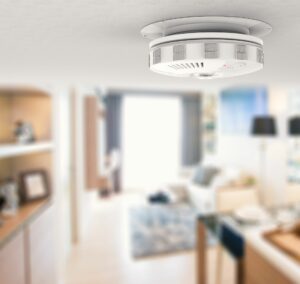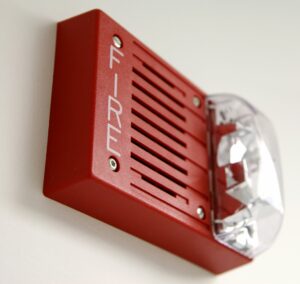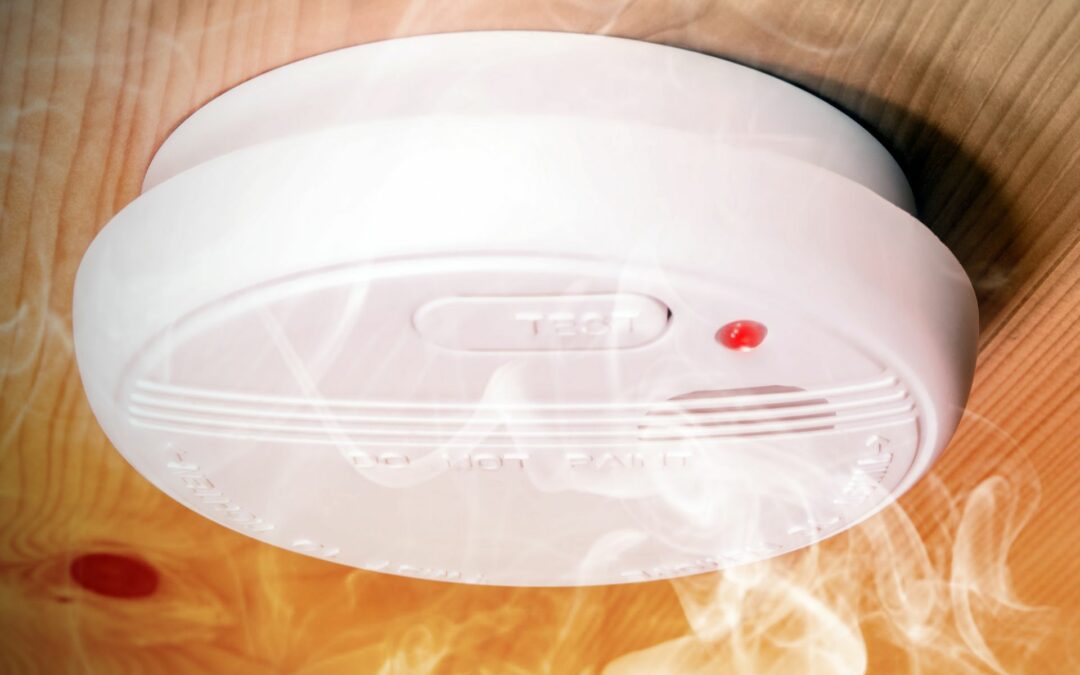Do you remember those days in school when the teacher would be interrupted by the blaring sound of the fire alarm? Do you remember being reminded to walk single-file and silently exit into the parking lot until permission was given to return to class? Fire alarm systems are present in schools, businesses, and even our homes.
They let us know when to exit a building on fire or if there is a fire within our immediate vicinity. However, you are probably curious about when fire alarm systems are required. Luckily you can read this blog to learn the answer to the question, “When are fire alarm systems required?”
Legal Requirements For Fire Alarm Systems Nationwide
The NFPA (National Fire Protection Agency) states that where non-residential buildings are concerned, there are specific individual guidelines for the specific types of occupancies. These include educational, assembly, detention and correctional, business and mercantile, and storage and industrial occupancies. In other words, nearly all non-residential buildings are required to use a fire alarm system.
In fact, NFPA 72; which focuses specifically on the National Fire Alarm and Signaling Code; states the minimum requirements for fire alarm systems in residential homes. These minimum requirements are to have an alarm installed on the inside and outside of each sleeping room and at least one alarm on each level. However, these requirements are slightly adjusted every few years, so the answer to the question of “When are fire alarm systems required according to federal law?” might change at some point in the future.
When Are Fire Alarm Systems Required In California?: Residential
Now it’s time to look at when are fire alarm systems required in residential buildings in the state of California. Since 2013, smoke alarms have been required in all residential buildings, including traditional residential houses of one or more stories, time-shares, apartments, factory housing, condos, and cooperatives, among others. In 2020, the law was updated also to include mobile homes and used manufactured homes for smoke alarm requirements. It can be safely assumed that the NFPA 72 current minimum standard for how many fire alarms should be installed applies in this scenario as well.

When Are Fire Alarm Systems Required In California?: Commercial
We can’t fully understand when are fire alarm systems required in California without taking a closer look at what those requirements are for commercial and other non-residential buildings. As far as commercial and non-residential buildings are concerned, the state of California follows the standards laid out in NFPA 72. As stated earlier, NFPA 72 states that smoke alarms must be installed in essentially all commercial and non-residential buildings. Each category of property listed in NFPA 72 comes with its own specific requirements depending on the property. These properties are also subject to regular fire safety inspections, so keeping the fire alarm systems up to date and up to code is absolutely essential.

Installing A Fire Alarm System
Now that you know the answer to “When are fire alarm systems required?” you can proceed to find the best fire alarm system for your home or place of work. First, you’ll need to determine which brand receives the best reviews in terms of effectiveness. After that, take some time to check which spots in your home or workplace still need smoke detectors, after which you can place your order. As soon as the smoke alarms arrive, you will be inclined to install them as soon as possible.
However, in order to avoid any errors, we recommend hiring a professional to take care of installing your fire alarm system. In addition to the smoke detector, you want to ensure that the locks in your home or workplace function properly so that anyone can easily exit in case of an actual fire. Luckily, you can contact us at Pro Locksmith to make sure your home or workplace locks are in good shape in case of an emergency.

